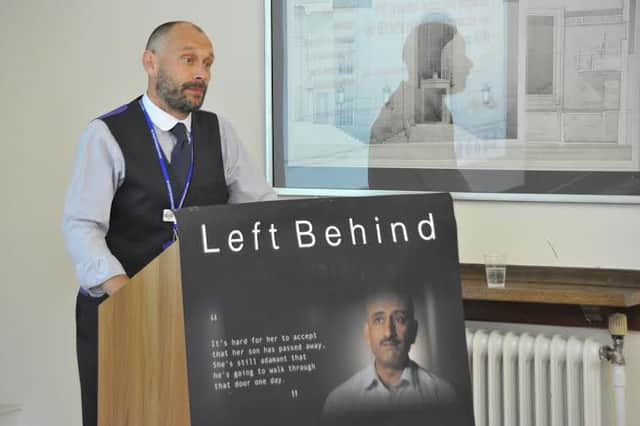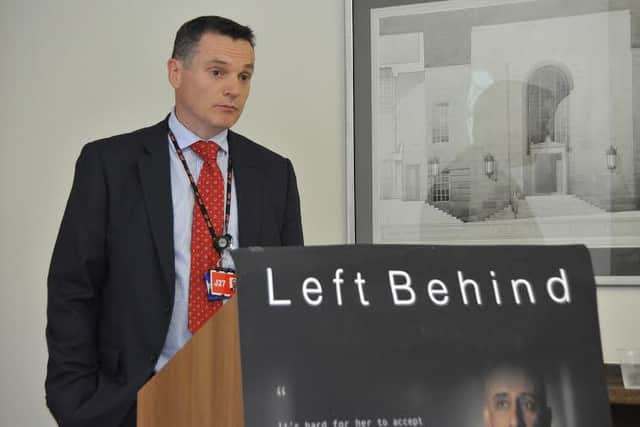Police launch new video aimed at stopping people from Northamptonshire travelling to Syria


Mark Pollock, who is charge of the region’s fight to prevent terrorism, spoke at the launch of a new video at Northamptonshire Police’s Wootton Hall headquarters called ‘Left Behind’, which explores the impact on families if their loved ones travel to Syria.
Mr Pollock said there had been cases of people from the East Midlands travelling to Syria, although fears of Islamic extremism only made up half of the referrals to the counter terrorism unit.
Advertisement
Hide AdAdvertisement
Hide AdHe said: “Around 25 per cent of our cases are to do with far-right terrorism concerns.


“The message we are trying to get across is that radicalisation can occur in any community.
“Young people in their bedrooms can be reading all sorts on online material that their parents don’t know about. Online radicalisation can take place from thousands of miles away. Some of Daesh’s social media presence is very slick.”
‘Left Behind’ features accounts from police Prevention Officers of the distress, confusion and disruption caused to families of people who have travelled to Syria.
Advertisement
Hide AdAdvertisement
Hide AdMr Pollock said: “When an individual decides to travel to an area of conflict, there is a ripple effect they leave on the lives of those they leave behind. Wider family and communities can be left devastated.


“The purpose of this film is to give real life accounts of what our officers see as mothers, fathers, siblings – who often may be too young to fully understand what is happening, try and accept the reality that they may have lost a loved one.
“We want this video to be a catalyst for conversations in communities and in homes, with the hope that this may prevent the same happening to another family.”
Detective Sergeant Andy Blaize said his team of three police officers, who work on counter terrorism in Northants, were receiving referrals every week.
Advertisement
Hide AdAdvertisement
Hide AdMr Blaize said: “It has probably increased by 20 per cent in the past year.
“Vulnerable people can be particularly susceptible to the false ideology promoted by groups such as Daesh.”
Anyone with concerns about a loved one that might be thinking of travelling to a conflict zone should call police on 101. They can talk in confidence about any concerns and officers will work with families and specialist agencies to offer bespoke support on a case-by-case basis.